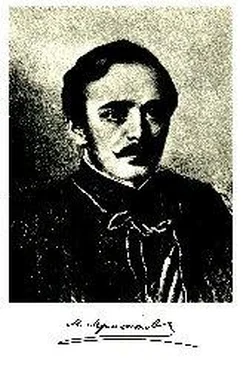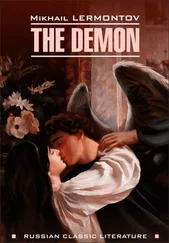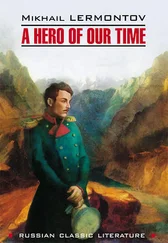ritual blood-brother in this culture, sworn buddy, from the word for "guest" in Turkic dialect; it doesn't seem that it means much in this story.
in this case, all Muslims.
Muslim religious leader.
formal dance.
strummed Russian string instrument.
although in Latin languages it might connote "beautiful," in Turkic it means "grief." However, the Circassian language is not Turkic but Ibero-Caucasian, an Indo-European branch.
pronounced with the accent on the second syllable.
actually, barani meaning rams.
beshmet or bashmet , a silk or cotton shirt or smock belted at the waist and usually fancily embroidered; the jacket over it was usually worn open to expose it.
planning what? The plot is thin here.
southern Russian tribesmen, Christians, who served as skilled cavalrymen and sort of military police force.
word used is actually "Giaour," Turkish for non-Muslim, like the Yiddish "goy."
Nabokov believes it means "Black Eye" in Turkic, but again, the Circassians here didn't speak a Turkic language. The love affair between Russian men and their horses is described in many books.
famous sword-maker made very sharp blades layered and tempered like Toledo steel. Pistols and muskets of the time had only a short range and were inaccurate from a moving horse. Swords and knives were important emblems for men.
probably invented by Lermontov, and his lie about its being in prose first is just piling fiction upon preposterous fiction. Lermontov wrote surpassingly good verse still memorized by Russians, but pretty much unknown in English.
Author's note : I apologize to my readers for having put Kazbich's song, which of course was told in prose, into verse; but habit is second nature.
Nabokov lists a whole page of these stock phrases Lermontov uses to indicate emotion in various Romantic ways.
mountain mammal like an antelope or goat.
bride-money, dowry. Many tribes regulate marriages by requiring the husband to pay for the wife before marriage – if she returns to her family he doesn't always get his money back; alternatively, her family gives money which is often retained by her no matter what happens.
the narrator (can you figure out which one here?) has already forgotten that this courser never needed to be tethered.
Nabokov states something apparently is wrong with the text here.
"I once witnessed...," etc.: Nabokov emphasizes the role of eavesdropping in the novel as a literary device to advance the plot, since the exchange of letters as in the Romantic epistolary novel had been worn out by this time. Psychoanalytic critics point out the social isolation involved in this behavior. It also brings in the element of chance vs. fate that runs through the text. Furthermore, it fits right in with the strange texture of the text where fictional characters seem to invent and imitate one another and listen in to what each other says – amazing when you think of it – what is really the truth in this novel?
i.e., Muslims on the south side of the mountains.
the Russian word is the same for heaven, sky, or firmament.
Gamba, French diplomat to Georgia, travel writer (1826), misinterpreted Mount Krestovaya (Mount of the Cross, from Russian "krest" or cross) as "Mount Saint Christopher."
prosaic central Russian provincial cities.
the whistling highway robber of Russian folklore who could frighten by imitating wild animals.
(1672-1725) occupied Derbent in 1702 and Baku in 1723 and traveled through East Caucasus but there is no record he went as far as this part of the mountains.
polyana , which really means clearing.
so much for the blood-brother.
did Kazbich want to carry her off?: The previous motivation seems to have been forgotten – why didn't he take off after his beloved courser instead of the girl?
we couldn't bring ourselves to use the word "poultice" here.
or Shapsugi, a tribe of the Circassians in the northwest Caucasus.
now Krasnodar, North Caucasus, spa town perhaps 60 miles northwest of Vladikavkaz.
the dry steppes, or rolling upland prairie hills north of the Caucasus, were crossed by (Bactrian) camel caravans.
comic character from 1785 and later operas.
Nabokov uses the term "bags" here because the local people were known to collect honey in goatskins.
or coy woman: from his short novel, La femme de trente ans (1834)
all-too-revealing Romantic so-called autobiography of 1782. See on-line version.
nechisto, just unclean, but there are overtones of haunted or evil, perhaps influenced by Undina.
Black Sea port near Caucasus, south of Taman.
"On that day shall the mute sing out and the blind shall see:" Isaiah 35:5-6, 29:18.
Nabokov insists the word used means "boulders" and goes into a long explanation of why it should be translated "billows".
as the name indicates, this is what is left of an ancient Greek colony on the Black Sea.
actually, "undine," as in Zhukovsky's poem Undina and an 1811 French romance.
changed here from "gloaming".
not to be confused with the political movement a little later, this was a foolish group of dandies in Paris who ineffectually looked down on the solid middle class and posed such ridiculous propositions as this one.
pseudo-science such as phrenology and diagnosis by facial features was common at the time. It would not be surprising to see Roman features in people living in Black Sea towns.
heroine from Goethe's Wilhelm Meister.
spa town on river about 60 miles west of Yekateringrad and north of the Caucasus and its highest peak, Mt. Elbrus. Lermontov was killed in a duel here. A spa is a place with mineral water springs thought to have healing properties and thus frequented by wounded soldiers or other sick or old people. It was a good place to mix and form new social relationships and so a suitable place for a novel. Finally, this type of society gathering was usual in the society novels that Lermontov effectively puts paid to in this segment (the Encyclopædia Brittanica article on Lermontov seems to miss the point of its irony entirely).
Читать дальше

![Михаил Лермонтов - A Hero of Our Time [New Translation]](/books/27671/mihail-lermontov-a-hero-of-our-time-new-translati-thumb.webp)










